In today’s fast-paced world, caring for your mind is just as vital as caring for your body. A Complete Guide to Mental Health helps you recognize the relationship between feelings, ideas, and actions. This guide is designed to support your journey toward better psychological well-being, improved emotional stability, and stronger social functioning.
Whether you’re facing mental distress or seeking ways to enhance your quality of life, this article provides expert-backed insights and practical advice. Mental health affects everything—from relationships to work performance—so understanding it fully can transform your life. Let’s delve into the facts, treatments, and habits that foster lasting emotional resilience and mental clarity.
What Is Mental Health and Why Does It Matter
Mental health is your emotional, psychological, and social health. It affects your interpersonal relationships, productivity, and how you manage stress. Good mental health means you can handle daily challenges and live a purposeful life. It connects to your quality of life and even your physical health.
Poor mental health can lead to substance dependence, social withdrawal, and suicidal ideation. Mental health issues may not always be visible, but they impact brain function and neural connections deeply. That’s why taking care of it is just as important as maintaining your physical well-being.
The Importance of Good Mental Health
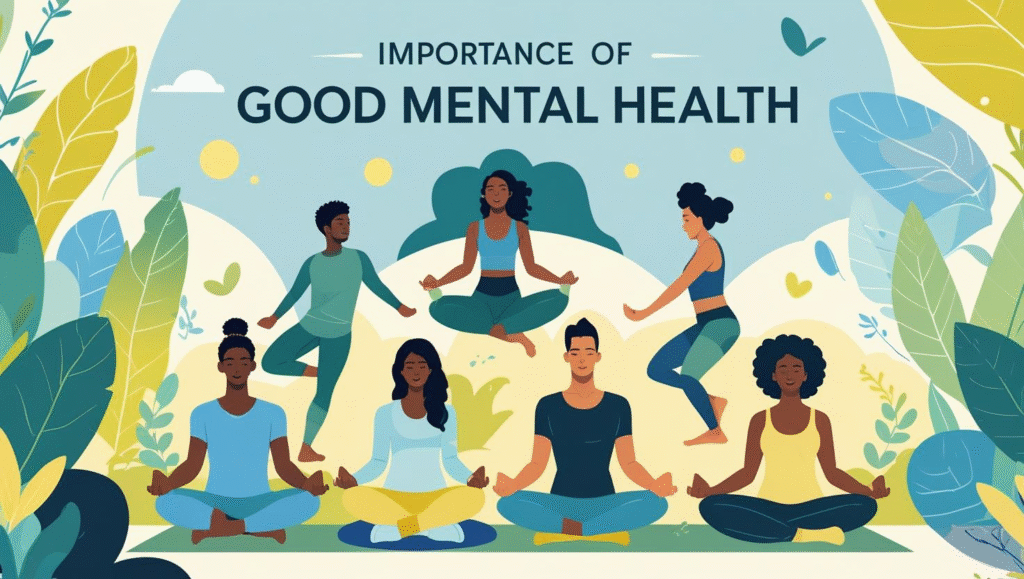
When your mental health is strong, you feel better emotionally and physically. You have better focus, emotional stability, and stronger social functioning. This helps you form meaningful relationships and succeed in work or school.
It also protects you from long-term health issues. People with balanced psychological well-being tend to avoid substance abuse, sleep better, and experience fewer illnesses. They also enjoy greater self-esteem and more stable moods.
Common Mental Health Disorders You Should Know
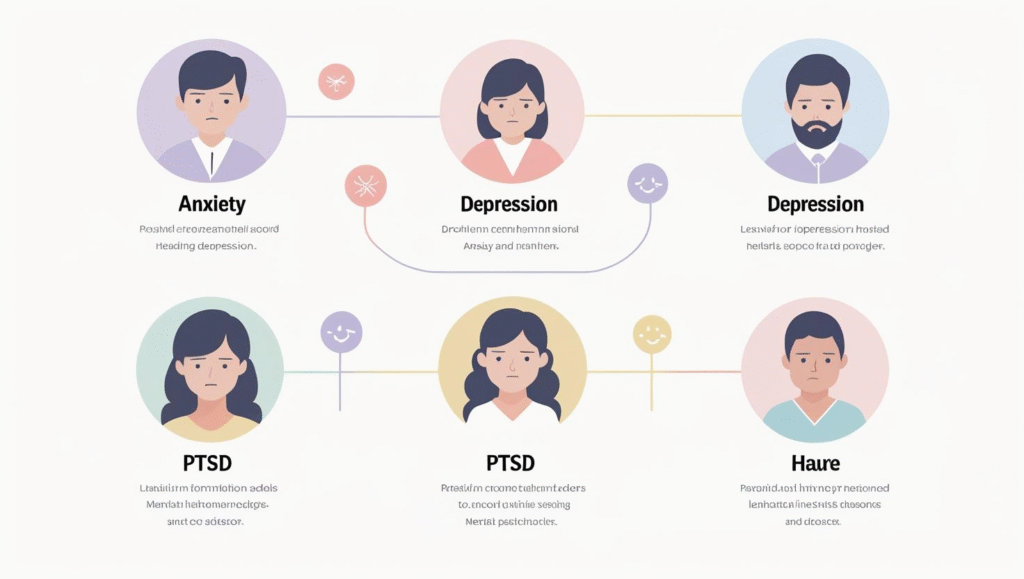
Some of the most common mental health conditions include depression, anxiety, and OCD. Others include bipolar disorder, PTSD, and schizophrenia. These illnesses vary in severity and may fluctuate in intensity over time.
Each disorder affects people differently. A clinical diagnosis is often needed to begin treatment. Below is a simple table to help you understand each condition.
Disorder Key Signs Type
Depression: Chronic sadness, lack of energy, Mood disorder
Anxiety: Acute anxiety episode, worry, Anxiety-related
OCD Compulsions, repetitive thoughts, OCD disorder
PTSD Nightmares, fear after trauma, Trauma-related condition
Bipolar Mood swings, risky behavior, Mood disorder
Understanding Anxiety: Causes, Symptoms & Types
Anxiety is more than just stress. It includes anxiety-related symptoms such as racing thoughts, trembling, and panic. Some experience an acute anxiety episode during high-stress events. Others live with generalized anxiety disorder (GAD), which affects them daily.
Types include GAD, panic disorder, phobias, and social anxiety. Phobia treatment or anxiety treatment methods often include therapy modalities like talk therapy and medications. Anxiety may have a genetic link, a biological influence, or be tied to a personal history of life trauma.
Taking on the Stigma of Mental Illness & ADHD
Stigma keeps many from getting help. People often misunderstand mental illness types, like ADHD or severe mental disorders. Society can be judgmental, making people feel ashamed or weak.
Breaking this stigma starts with open conversation and education. ADHD is not a flaw—it’s a condition linked to brain function. Discussing it helps reduce fear and increase mental support for everyone.
Mental Health in Teenagers: Why Teens Are Talking About It
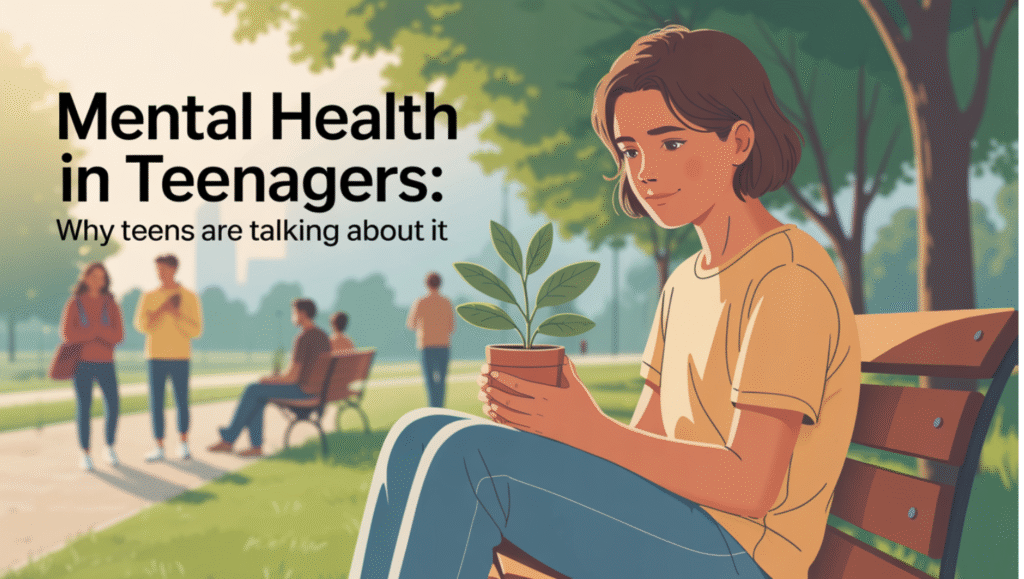
Youth mental health is a hot topic today. Teens are speaking up because they face pressure from social media, school, and struggles with their identity. Many are also coping with childhood trauma or feeling isolated.
Teen mental health is serious. Rising rates of suicide data and anxiety-related symptoms among teens prove that we must listen. Schools, parents, and communities need to create safe spaces and provide practical support tools to help students.
Risk Elements That May Impact Your Mental Well-Being
Many things can shape mental health. These include lifestyle risk factors, genetic links, and environmental impacts. Your personal history, diet, sleep, and stress levels can all contribute.
Other causes include substance abuse, family trauma, and poor sleep hygiene. Often, it’s a combination of biological factors and life experiences that causes issues to develop over time.
Warning Signs of Mental Health Problems
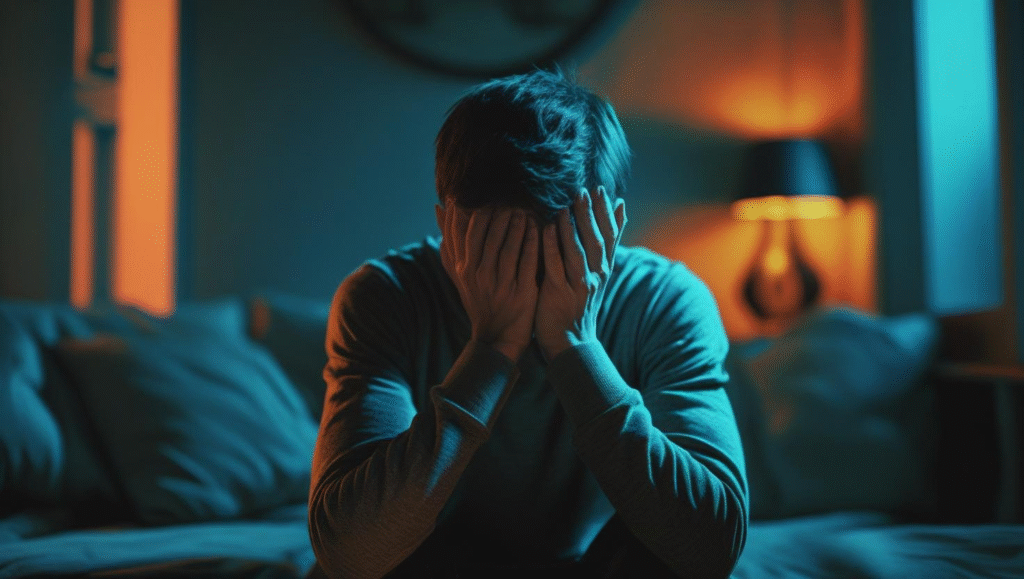
Recognizing signs early can be empowering and potentially life-saving. Look for emotional dysregulation, extreme fatigue, or changes in behavior. Losing interest in things, isolation, and social withdrawal can signal deep pain. By being aware of these signs, you can take proactive steps to address them, putting you in control of your mental health journey.
In more serious cases, people may experience delusions or hallucinations, or become unable to work or care for themselves. These are signs of a severe mental disorder needing urgent care.
Starting the Conversation Around Mental Health
It’s not just essential, but also your responsibility, to start a conversation about mental health. “How are you feeling?” should be your first question. To promote honesty, ask open-ended questions that encourage thoughtful responses. Others feel more open and at ease when sharing in safe, judgment-free environments. You can demonstrate your concern and willingness to help those around you by initiating these discussions.
To assist, you don’t need to be an expert. Simply listening and offering support, such as through group sessions, counseling, or treatment, can have a profound impact. Start now, but start small.
When and How to Seek Help for Mental Health
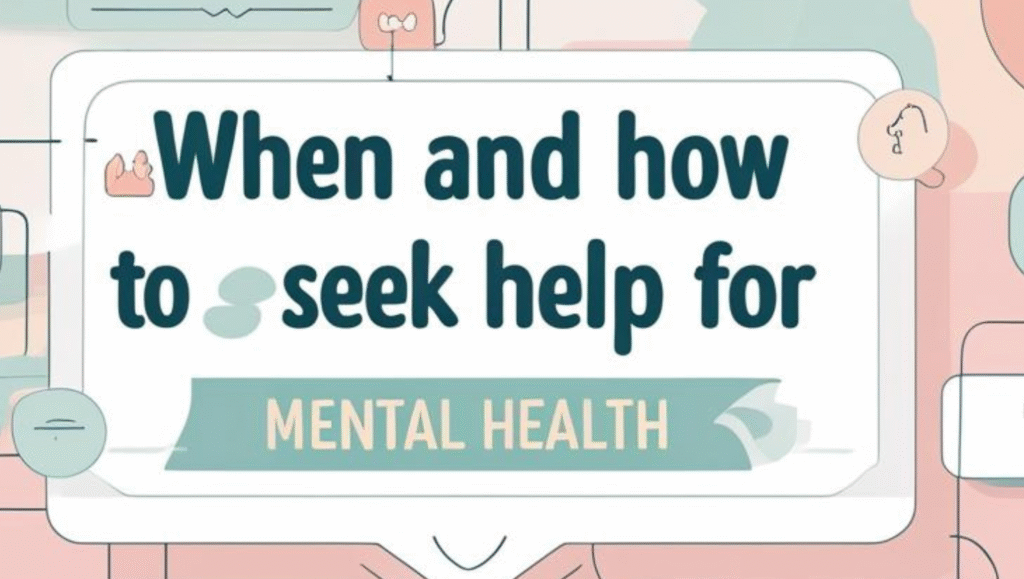
If your symptoms worsen, become disruptive to your daily life, or persist for more than a week, it is recommended that you seek medical help. Examples include constant fear, trouble sleeping, or suicidal thoughts. These are warning signs that should not be ignored. Recall that seeking assistance is not a sign of weakness but rather a brave step toward healing. You are not alone on this road, and your courage is commendable.
In the U.S., you can start by consulting a primary care doctor or contacting mental health hotlines. You can also find help through mental health therapy, online platforms, or community centers that offer therapy sessions.
What to Expect from Mental Health Treatment
Mental health treatment depends on the condition and the person. Many start with talk therapy or cognitive behavioral therapy (CBT). Others may need brain stimulation treatment or shock therapy for severe mental disorders.
Every therapy modality has a unique approach. Some focus on past trauma, while others address thoughts and behaviors. Your therapist will help find what works best for your needs.
Commonly Prescribed Antidepressants and How They Work
Antidepressant use is everyday in the U.S. for managing depression symptoms and mood disorders. These include SSRIs, SNRIs, and tricyclics. They affect neural connections and help rebalance brain chemicals.
These medications don’t work instantly. It can take weeks to see results. Side effects may include nausea or sleep issues. Always consult a doctor before starting any mood medication.
Four Techniques for Handling Everyday Stress and the Pandemic

The epidemic had a profound effect on mental health; many experienced anxiety and loneliness. However, you may handle stress by using everyday coping strategies. These consist of journaling, deep breathing, and strolling.
Mindfulness is another beneficial technique. These help you remain composed and present. Combine this with social connections and a healthy routine to help you stay grounded in trying times.
Talk It Out: Mental Health Resources Everyone Should Know
The U.S. has many mental health support services. You can call the 988 Suicide & Crisis Lifeline or use apps like Headspace and BetterHelp. Some states offer free support groups and community counseling.
Table: U.S. Resources for Mental Health
ResourceTypeWebsite
NAMI Education & Support nami.org
988 Hotline 24/7 Crisis Help 988lifeline.org
BetterHelp Online Therapy betterhelp.com
SAMHSA Substance Help samhsa.gov
How to Maintain Mental Well-Being in the Long Run
Good mental health requires daily care. Focus on personal development, preventive actions, and building a life you love. Exercise, eat well, and get enough sleep.
Make time for hobbies and people who bring you joy. Use coping techniques and practice gratitude. All of this strengthens your mental resilience and improves your quality of life.
The Positive Effects of Good Mental Health
Strong mental health improves everything. From better sleep to healthier interpersonal relationships, it makes life feel more balanced and joyful. You think more clearly and respond more effectively to challenges.
It also boosts your self-esteem, increases focus, and builds emotional strength. Overall, your ability to love, work, and grow becomes easier and more fulfilling.
Final Thoughts: The Bottom Line on Mental Health
Mental health is not a luxury. It’s a must-have. From therapy and counseling to community resources, help is available. Everyone deserves support, healing, and hope.
Remember, you’re not alone. The first step may be hard, but it leads to a better life. Let’s continue to talk, learn, and thrive together.
Frequently Asked Questions
1. What is mental health, and why is it important?
Mental health is your emotional, mental, and social well-being. It affects how you think, feel, and act every day. Good mental health supports your emotional stability, healthy interpersonal relationships, and strong social functioning. It’s important because it helps you handle life’s ups and downs.
2. How can I tell if I have a mental health problem?
Look for signs like chronic sadness, anxiety, changes in sleep, or withdrawal from people. You may also notice trouble focusing or feeling hopeless. These signs could mean you’re experiencing mental distress or even a more severe mental disorder that needs attention.
3. What treatments are available for mental health conditions?
Treatments include therapy & counseling, mood medication, and lifestyle changes. In some cases, options like shock therapy or brain stimulation treatment may be suggested. You can also join a support group or try talk therapy with a licensed professional.
4. Can mental health problems be prevented?
While not all issues can be prevented, many can be mitigated through preventive actions such as regular exercise, good sleep hygiene, and mindfulness practices. Building strong social connections and managing stress are also crucial for long-term psychological well-being.
5. When should I seek professional help?
If symptoms last more than two weeks, worsen, or interfere with daily life, it’s time to get help. Don’t wait if you have suicidal ideation, intense fear, or an acute anxiety episode. Reach out to a doctor or mental health professional for the right therapy modalities and care.
Welcome to Depthoverdrive,
I’m Syeda Naqvi, a passionate SEO content writer with 3 years of experience in crafting engaging, optimized, and reader-friendly content. I specialize in creating content that not only ranks on search engines but also provides real value to readers, with a strong understanding of keyword research, on-page SEO, and content strategy.

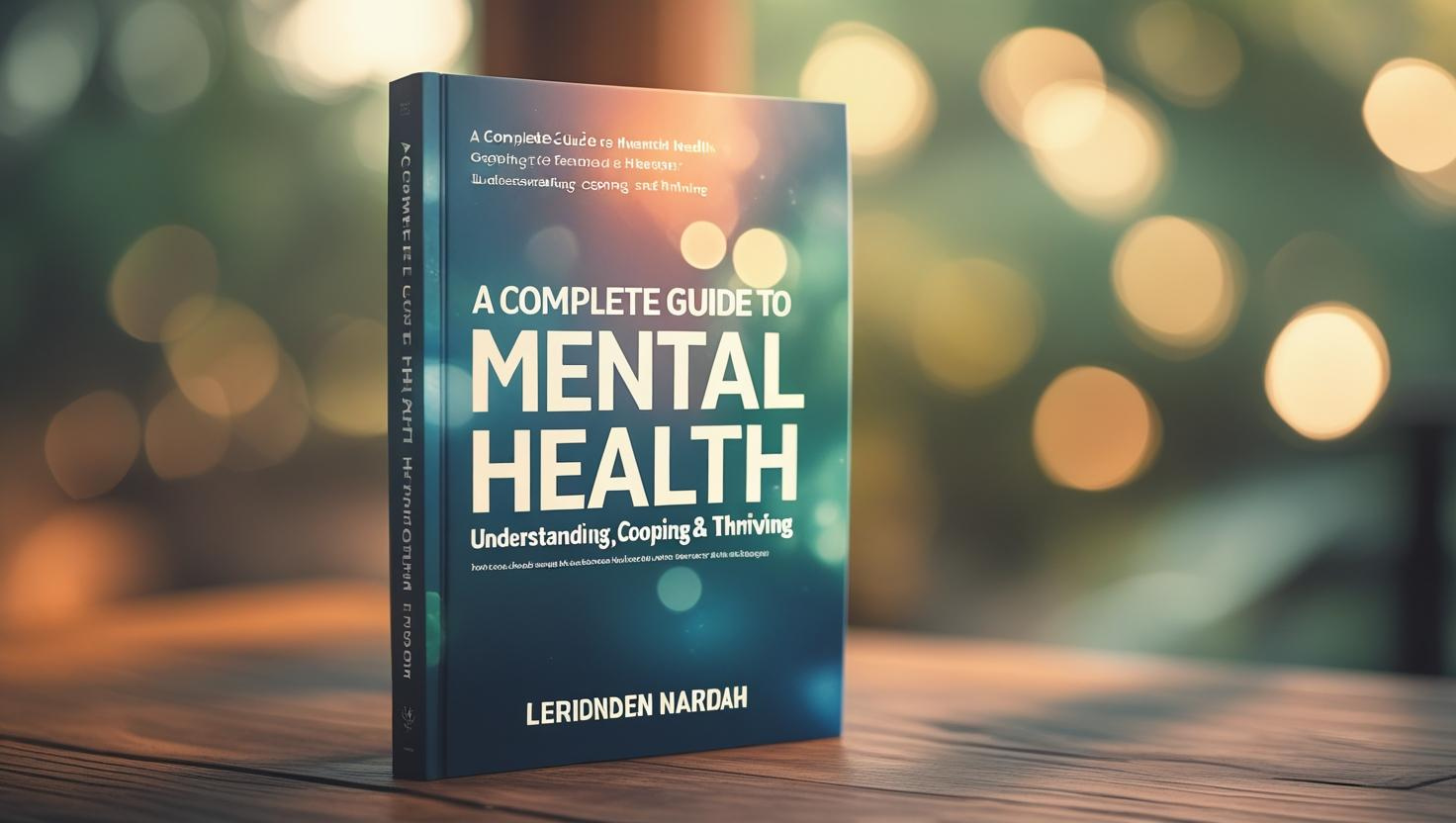
1 thought on “A Complete Guide to Mental Health: Understanding, Coping & Thriving”